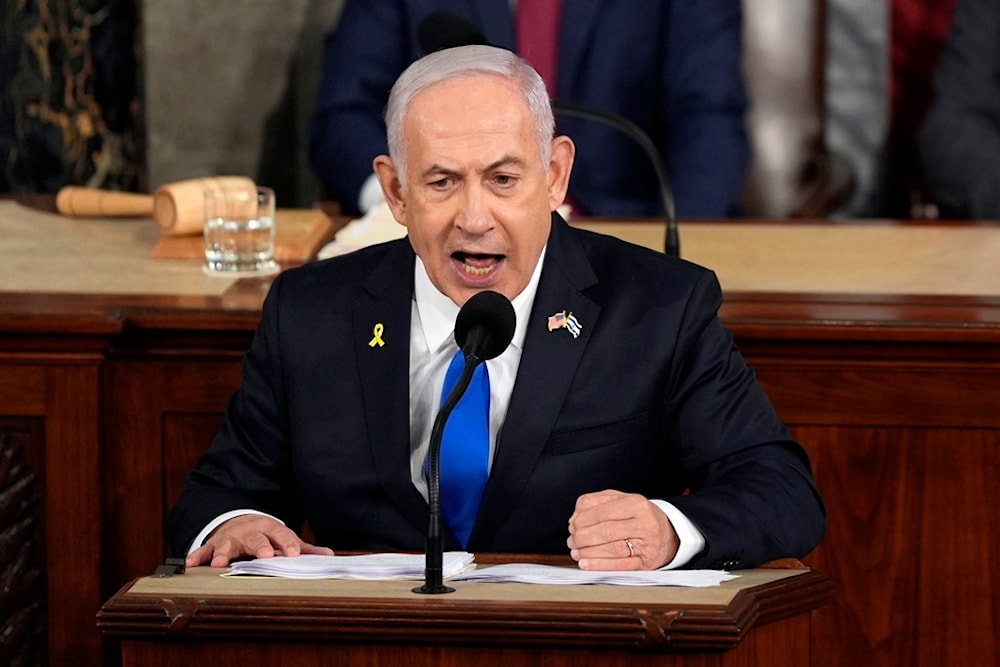Netanyahu's Churchillian appeal risks US war with Iran
Unlike Churchill, who sought to push the US into active combat alongside British forces in Europe, Netanyahu faces a US public and political landscape hesitant to engage in another Middle Eastern conflict, writer Leon Hadar says.
-

Israeli Prime Minister Benjamin Netanyahu speaks to a joint meeting of Congress at the Capitol in Washington, July 24, 2024. (AP)
An opinion piece published by writer Leon Hadar for The National Interest on Tuesday draws a comparison between Israeli Prime Minister Benjamin Netanyahu and the UK's wartime leader, Winston Churchill.
In his address before the US Congress, Netanyahu assumed a Churchillian tone, urging for unwavering US-Israeli unity against Iran.
He claimed that "Israel" is not only defending its own interests but also protecting American ones, asserting, "Give us the tools faster and we'll finish the job."
Read more: Congress applauded Netanyahu once every minute during his speech
Hadar points out that Netanyahu's appeal is a deliberate nod to Churchill's 1940s plea to the US for support against Nazi Germany. However, Hadar suggests Netanyahu's analogy is incomplete.
Unlike Churchill, who sought to push the United States into active combat alongside British forces in Europe, Netanyahu faces a US public and political landscape hesitant to engage in another Middle Eastern conflict after years of challenging interventions in Iraq and Afghanistan.
While Netanyahu may be seeking American support for a more aggressive stance on Iran, recent history has shown Washington's reluctance to be drawn into another war in the region, Hadar says.
With President Biden's refusal to greenlight attacks on Iran's nuclear and oil facilities, the administration aims to avoid escalating tensions further.
Read more: Gulf states urge US to stop 'Israel' from attacking Iranian oil sites
However, the situation has grown more precarious since the US exited the JCPOA in 2018, leading to a series of tit-for-tat actions between Iran and "Israel".
According to Hadar, this evolving conflict has compelled the US to increase its support to "Israel", deploying the THAAD missile defense system and additional troops in the region.
These deployments, Hadar warns, could potentially lay the groundwork for direct American involvement if hostilities intensify.
In a broader context, Hadar questions whether the US would be willing to sustain long-term involvement in another Middle Eastern conflict, particularly as public opinion leans more isolationist.
A further military entanglement, he posits, could mirror the fallout of the 1956 Suez Crisis, which marked a decisive end to British and French interventionist influence in the Middle East.
A similar entanglement in Iran could, he suggests, hasten the end of America's own "age" in the region as its strategic focus shifts increasingly toward East Asia.

 3 Min Read
3 Min Read








